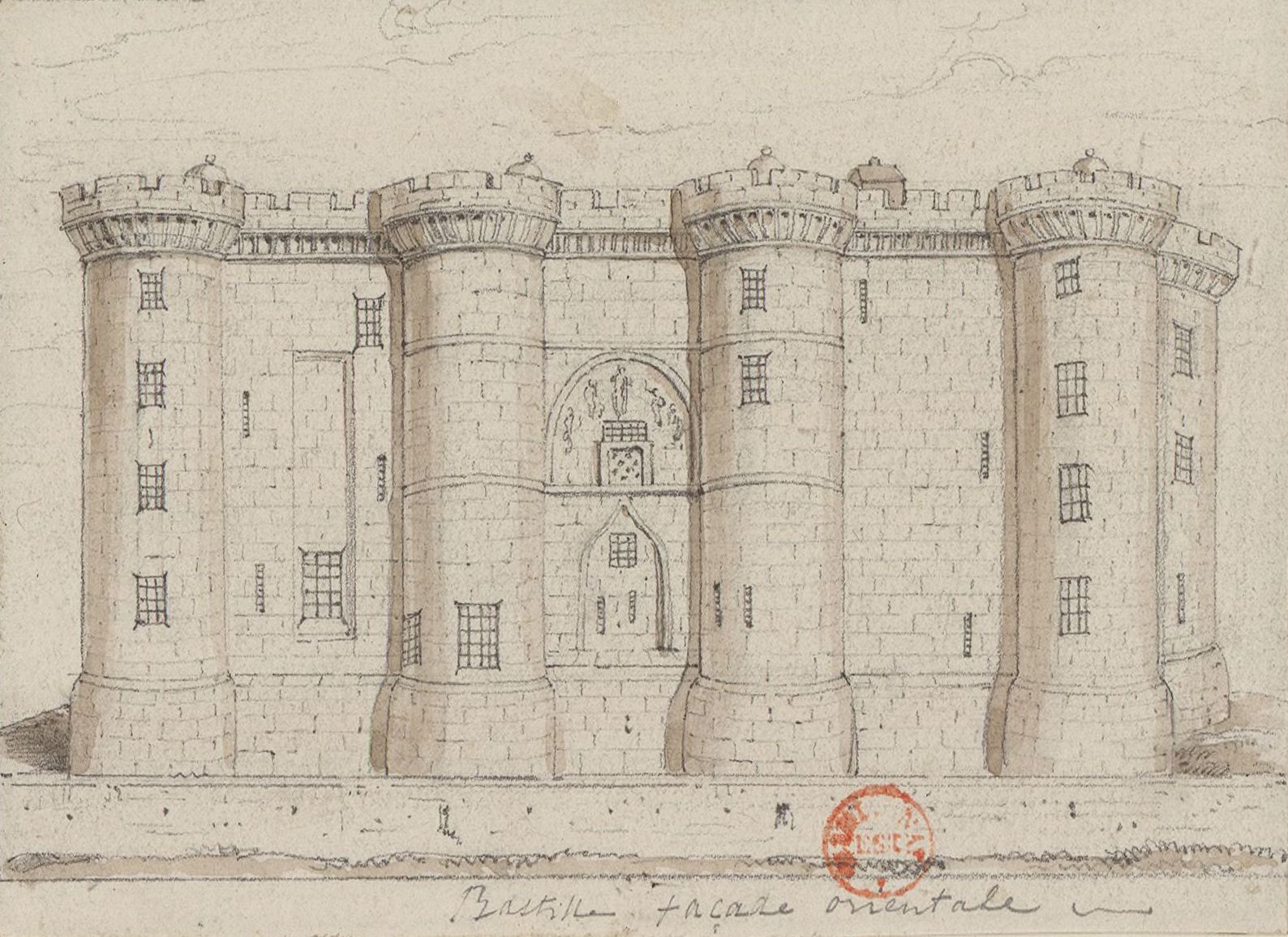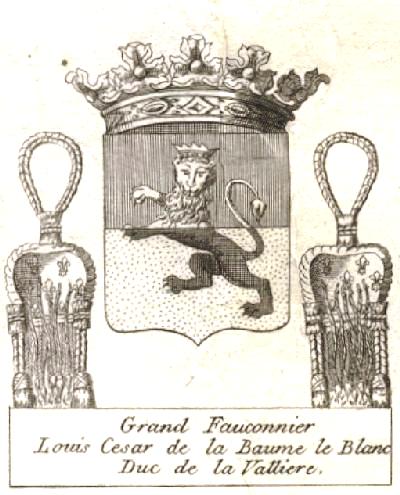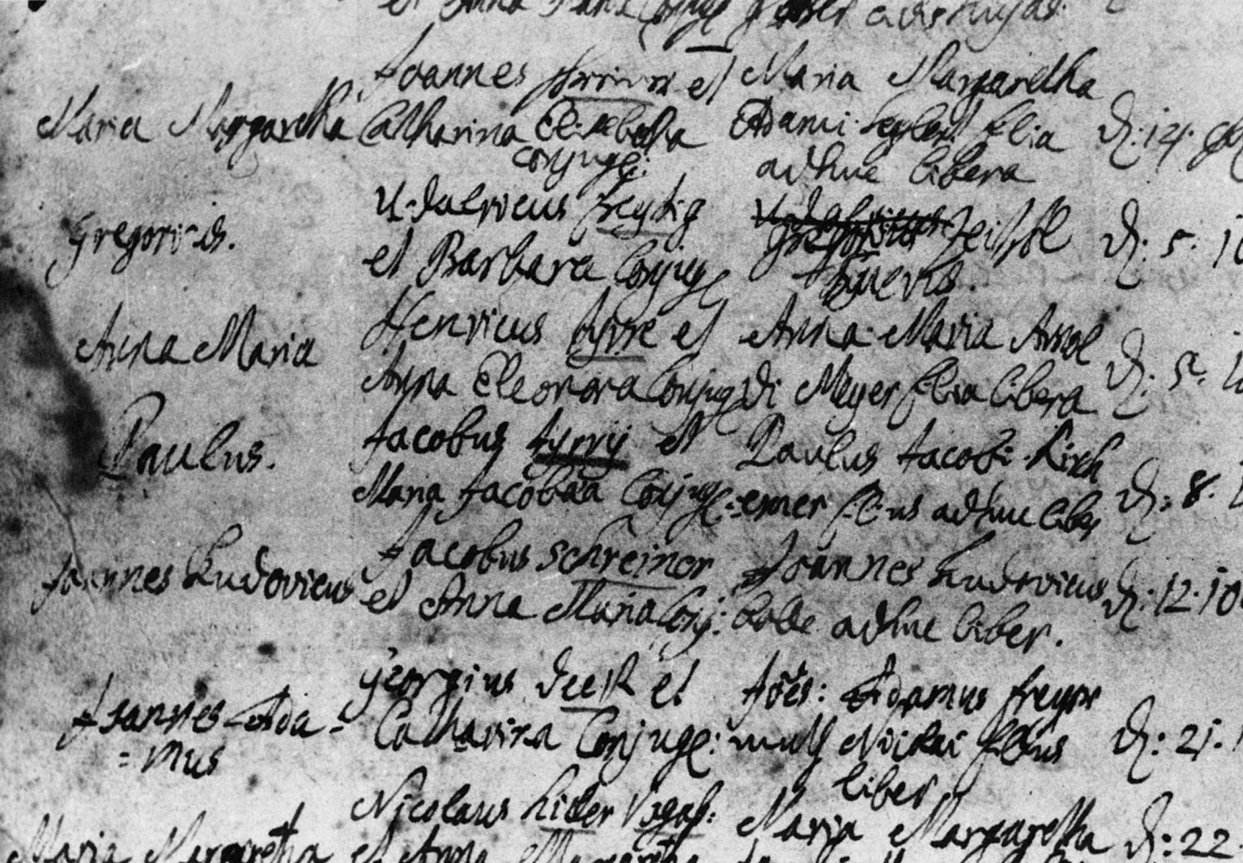|
Guillaume Debure
Guillaume Debure (10 May 1734 – 14 February 1820) was a French printer and librarian.https://data.bnf.fr/12357590/guillaume_debure/ Debure was the eldest son of the Parisian bookseller Jean Debure and son-in-law (1764) of bookseller Marie-Jacques Barrois, he was a cousin of Guillaume-François Debure. Received master in his trade May 18, 1759, he was deputy of his community from July 1775. He was imprisoned in the Bastille from 23 to 29 January 1778 for refusing to stamp counterfeit books. He was librarian of the King's Library (1786) (later national and imperial) then of that of Monsieur, brother of the King (1789). He was appointed librarian at the Académie des inscriptions (1788) and member of the French Academy of Sciences (1788). In November 1790, he belonged to the Committee on Monuments (Letters section) and in 1791, he was at the service of the . From January 1795, he worked as an employee of the temporary committee of the Arts to establish the catalogs of confiscated ... [...More Info...] [...Related Items...] OR: [Wikipedia] [Google] [Baidu] |
Guillaume-François Debure
Guillaume-François Debure (25 January 1731 in Paris – 15 February 1782 in Paris) was a French printer and bibliographer Bibliography (from and ), as a discipline, is traditionally the academic study of books as physical, cultural objects; in this sense, it is also known as bibliology (from ). English author and bibliographer John Carter describes ''bibliography .... The printer Guillaume Debure (1734–1820) was his cousin. Works (selection) *1755: ''Museum typographicum, seu collectio in qua omnes fere libri rarissimi...recensentur'', printed only to 12 copies and published under the name ''G. F. Rebude'', anagram of his surname. *1763–1768: ''Bibliographie instructive, ou Traité de la connaissance des livres rares et singuliers'', in-8 * several ''Catalogs of libraries'' sought after from the 19th century for the way they are written. External links Guillaume-François Debureon data.bnf.fr Writers from Paris 1731 births 1782 deaths French bibliographers F ... [...More Info...] [...Related Items...] OR: [Wikipedia] [Google] [Baidu] |
Bastille
The Bastille (, ) was a fortress in Paris, known formally as the Bastille Saint-Antoine. It played an important role in the internal conflicts of France and for most of its history was used as a state prison by the kings of France. It was stormed by a crowd on 14 July 1789, in the French Revolution, becoming an important symbol for the French Republican movement. It was later demolished and replaced by the Place de la Bastille. The castle was built to defend the eastern approach to the city from potential English attacks during the Hundred Years' War. Construction was underway by 1357, but the main construction occurred from 1370 onwards, creating a strong fortress with eight towers that protected the strategic gateway of the Porte Saint-Antoine heading out to the east. The innovative design proved influential in both France and England and was widely copied. The Bastille figured prominently in France's domestic conflicts, including the fighting between the rival factions o ... [...More Info...] [...Related Items...] OR: [Wikipedia] [Google] [Baidu] |
Monsieur
( ; ; pl. ; ; 1512, from Middle French , literally "my lord") is an honorific title that was used to refer to or address the eldest living brother of the king in the French royal court. It has now become the customary French title of respect and term of address for a French-speaking man, corresponding to such English titles as Mr. or sir. History Under the Ancien Régime, the court title of Monsieur referred to the next brother in the line of succession of the King of France. It was always used for referring to the prince, not as a Style. The Kings' brothers were addressed as Monseigneur or Royal Highness. Hercule François, Duke of Anjou and Alençon (1555–1584), was the first notable member of the royalty to assume the title without the use of an adjoining proper name. In 1576, Monsieur pressured his brother King Henry III of France into signing the Edict of Beaulieu and effectively ending the Fifth Religious War of France. The resulting peace became popularly ... [...More Info...] [...Related Items...] OR: [Wikipedia] [Google] [Baidu] |
Académie Des Inscriptions
An academy (Attic Greek: Ἀκαδήμεια; Koine Greek Ἀκαδημία) is an institution of secondary or tertiary higher learning (and generally also research or honorary membership). The name traces back to Plato's school of philosophy, founded approximately 385 BC at Akademia, a sanctuary of Athena, the goddess of wisdom and skill, north of Athens, Greece. Etymology The word comes from the ''Academy'' in ancient Greece, which derives from the Athenian hero, ''Akademos''. Outside the city walls of Athens, the gymnasium was made famous by Plato as a center of learning. The sacred space, dedicated to the goddess of wisdom, Athena, had formerly been an olive grove, hence the expression "the groves of Academe". In these gardens, the philosopher Plato conversed with followers. Plato developed his sessions into a method of teaching philosophy and in 387 BC, established what is known today as the Old Academy. By extension, ''academia'' has come to mean the accumulation, de ... [...More Info...] [...Related Items...] OR: [Wikipedia] [Google] [Baidu] |
French Academy Of Sciences
The French Academy of Sciences (French: ''Académie des sciences'') is a learned society, founded in 1666 by Louis XIV of France, Louis XIV at the suggestion of Jean-Baptiste Colbert, to encourage and protect the spirit of French Scientific method, scientific research. It was at the forefront of scientific developments in Europe in the 17th and 18th centuries, and is one of the earliest Academy of Sciences, Academies of Sciences. Currently headed by Patrick Flandrin (President of the Academy), it is one of the five Academies of the Institut de France. History The Academy of Sciences traces its origin to Colbert's plan to create a general academy. He chose a small group of scholars who met on 22 December 1666 in the King's library, near the present-day Bibliothèque nationale de France, Bibliothèque Nationals, and thereafter held twice-weekly working meetings there in the two rooms assigned to the group. The first 30 years of the Academy's existence were relatively informal ... [...More Info...] [...Related Items...] OR: [Wikipedia] [Google] [Baidu] |
Bibliophile
Bibliophilia or bibliophilism is the love of books. A bibliophile or bookworm is an individual who loves and frequently reads and/or collects books. Profile The classic bibliophile is one who loves to read, admire and collect books, often amassing a large and specialized collection. Bibliophiles usually possess books they love or that hold special value as well as old editions with unusual bindings, autographed, or illustrated copies. "Bibliophile" is an appropriate term for a minority of those who are book collectors. Usage of the term Bibliophilia is not to be confused with bibliomania, a potential symptom of obsessive–compulsive disorder involving the collecting of books to the extent that interpersonal relations or health may be negatively affected, and in which the mere fact that a physical object is a book is sufficient for it to be collected or beloved. Some use the term "bibliomania" interchangeably with "bibliophily", and in fact, the Library of Congress does not u ... [...More Info...] [...Related Items...] OR: [Wikipedia] [Google] [Baidu] |
Louis César De La Baume Le Blanc
Louis César de La Baume Le Blanc, ''duc de Vaujours'', '' ''duc de La Vallière'''' (9 October 1708 – 16 November 1780), was a French nobleman, bibliophile and military man. The present '' duc d'Uzès'' and ''duc de Luynes'' descend from him. Family and childhood Louis César was the son of Charles François de La Baume Le Blanc, ''marquis'' and then ''duc de La Vallière'', and his wife, Marie Thérèse de Noailles, a daughter of Anne Jules de Noailles, ''duc de Noailles''. His father was a nephew of Louise de La Vallière, the first official mistress of King Louis XIV of France. On his father's side of the family, Louis César's relatives at court included Louise de La Vallière's daughter by Louis XIV, Marie Anne de Bourbon, ''princesse de Conti''. On his mother's side, his aunt was Marie Victoire de Noailles, the wife of Louis Alexandre de Bourbon, ''comte de Toulouse'', and mother of Louis Jean Marie de Bourbon, ''duc de Penthièvre'', the wealthiest man in France ... [...More Info...] [...Related Items...] OR: [Wikipedia] [Google] [Baidu] |
Pierre Paul Louis Randon De Boisset
Pierre is a masculine given name. It is a French form of the name Peter. Pierre originally meant "rock" or "stone" in French (derived from the Greek word πέτρος (''petros'') meaning "stone, rock", via Latin "petra"). It is a translation of Aramaic כיפא (''Kefa),'' the nickname Jesus gave to apostle Simon Bar-Jona, referred in English as Saint Peter. Pierre is also found as a surname. People with the given name * Abbé Pierre, Henri Marie Joseph Grouès (1912–2007), French Catholic priest who founded the Emmaus Movement * Monsieur Pierre, Pierre Jean Philippe Zurcher-Margolle (c. 1890–1963), French ballroom dancer and dance teacher * Pierre (footballer), Lucas Pierre Santos Oliveira (born 1982), Brazilian footballer * Pierre, Baron of Beauvau (c. 1380–1453) * Pierre, Duke of Penthièvre (1845–1919) * Pierre, marquis de Fayet (died 1737), French naval commander and Governor General of Saint-Domingue * Prince Pierre, Duke of Valentinois (1895–1964), fa ... [...More Info...] [...Related Items...] OR: [Wikipedia] [Google] [Baidu] |
Louis Marie D'Aumont , names sometimes translated to English as "Louis"
{{disambiguation ...
Louis may refer to: * Louis (coin) * Louis (given name), origin and several individuals with this name * Louis (surname) * Louis (singer), Serbian singer * HMS ''Louis'', two ships of the Royal Navy See also Derived or associated terms * Lewis (other) * Louie (other) * Luis (other) * Louise (other) * Louisville (other) * Louis Cruise Lines * Louis dressing, for salad * Louis Quinze, design style Associated names * * Chlodwig, the origin of the name Ludwig, which is translated to English as "Louis" * Ladislav and László - names sometimes erroneously associated with "Louis" * Ludovic, Ludwig, Ludwick, Ludwik Ludwik () is a Polish given name. Notable people with the name include: * Ludwik Czyżewski, Polish WWII general * Ludwik Fleck (1896–1961), Polish medical doctor and biologist * Ludwik Gintel (1899–1973), Polish-Israeli Olympic soccer player ... [...More Info...] [...Related Items...] OR: [Wikipedia] [Google] [Baidu] |
Baron D'Holbach
Paul-Henri Thiry, Baron d'Holbach (; 8 December 1723 – 21 January 1789), was a French-German philosopher, encyclopedist, writer, and prominent figure in the French Enlightenment. He was born Paul Heinrich Dietrich in Edesheim, near Landau in the Rhenish Palatinate, but lived and worked mainly in Paris, where he kept a ''salon''. He helped in the dissemination of "Protestant and especially German thought", particularly in the field of the sciences, but was best known for his atheism and for his voluminous writings against religion, the most famous of them being ''The System of Nature'' (1770) and '' The Universal Morality'' (1776). Biography Sources differ regarding d'Holbach's dates of birth and death. His exact birthday is unknown, although records show that he was baptised on 8 December 1723. Some authorities incorrectly give June 1789 as the month of his death. D'Holbach's mother, Catherine Jacobina (''née'' Holbach; 1684–1743), was the daughter of Johannes Jacob ... [...More Info...] [...Related Items...] OR: [Wikipedia] [Google] [Baidu] |
Data
In the pursuit of knowledge, data (; ) is a collection of discrete values that convey information, describing quantity, quality, fact, statistics, other basic units of meaning, or simply sequences of symbols that may be further interpreted. A datum is an individual value in a collection of data. Data is usually organized into structures such as tables that provide additional context and meaning, and which may themselves be used as data in larger structures. Data may be used as variables in a computational process. Data may represent abstract ideas or concrete measurements. Data is commonly used in scientific research, economics, and in virtually every other form of human organizational activity. Examples of data sets include price indices (such as consumer price index), unemployment rates, literacy rates, and census data. In this context, data represents the raw facts and figures which can be used in such a manner in order to capture the useful information out of it. ... [...More Info...] [...Related Items...] OR: [Wikipedia] [Google] [Baidu] |




